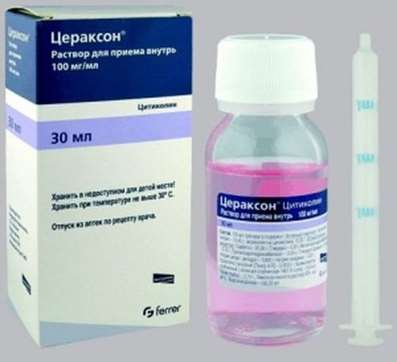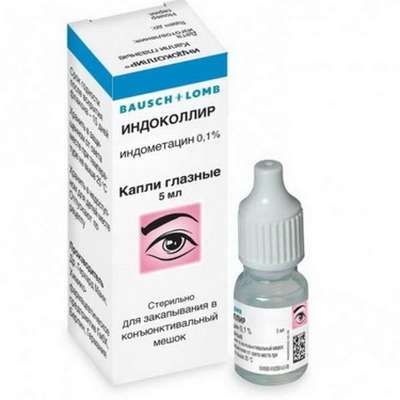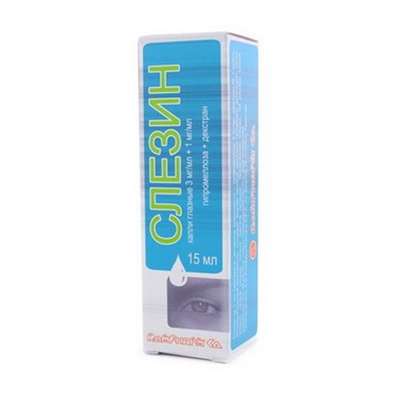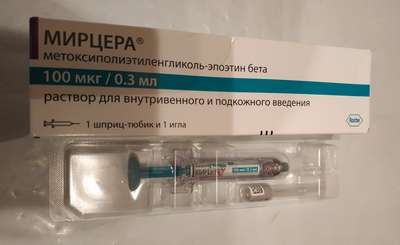Glycine
02 Mar 2018
Glycine (aminoacetic amphitaminic acid, aminoethanoic acid) - the simplest aliphatic amino acid, the only proteinogenic amino acid that does not have optical isomers. The name of the glycine is derived from other Greek. γλυκύς, glycys - sweet, because of the sweetish taste of the amino acid. It is used in medicine as a nootropic drug.
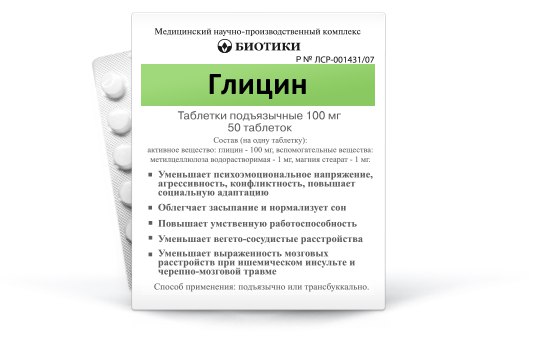
Biological role
Glycine is part of many proteins and biologically active compounds. From the glycine in living cells, porphyrins and purine bases are synthesized.
Glycine is also a neurotransmitter amino acid that exhibits a dual effect. Glycine receptors are found in many areas of the brain and spinal cord. By binding to receptors (encoded by the GLRA1, GLRA2, GLRA3 and GLRB genes), glycine causes a "retarding" effect on neurons, reduces the excretion of "exciting" amino acids, such as glutamic acid, from neurons and increases the release of GABA. Also, glycine binds to specific sites of NMDA receptors and, thus, facilitates the signal transmission from the excitatory neurotransmitters of glutamate and aspartate. In the spinal cord, glycine leads to inhibition of motoneurons, which allows the use of glycine in neurological practice to eliminate increased muscle tone.
In medicine
Manufacturers of glycine pharmacological agents claim that glycine has a sedative (sedative), mild tranquilizing (anti-anxiety) and mild antidepressant effect, reduces anxiety, fear, psychoemotional stress, reduces the severity of side effects of antipsychotics (antipsychotics), anxiolytics, antidepressants, hypnotics and anticonvulsants is included in a number of therapeutic practices to reduce alcohol, opiate and other types of abstinence, as an auxiliary Reparata, providing a weakly expressed sedative and tranquilizing effect. Has some nootropic properties, improves memory and associative processes.
Glycine is a regulator of metabolism, normalizes and activates the processes of protective inhibition in the central nervous system, reduces psychoemotional stress, increases mental performance.
Glycine is glycine- and GABA -ergic, alpha1-adrenoblocking, antioxidant, antitoxic; regulates the activity of glutamate (NMDA) receptors, due to which the drug is able to:
★ Reduce psycho-emotional stress, aggressiveness, conflict, improve social adaptation;
★ improve your mood;
★ ease falling asleep and normalize sleep;
★ Improve mental performance;
★ Reduce vegetative-vascular disorders (including in the climacteric period);
★ reduce the severity of cerebral disorders in ischemic stroke and head injury;
★ Reduce the toxic effects of alcohol and drugs depressing the functions of the central nervous system;
★ reduce the desire for sweets.
Glycine is present in significant amounts in cerebrolysin (1.65-1.80 mg / ml).
Glycine is a regulator of the processes of protective inhibition in the central nervous system, reducing psychoemotional stress.
In the pharmaceutical industry, glycine tablets can be potentiated with vitamins (eg vitamins B1, B6 or B12).

 Cart
Cart

